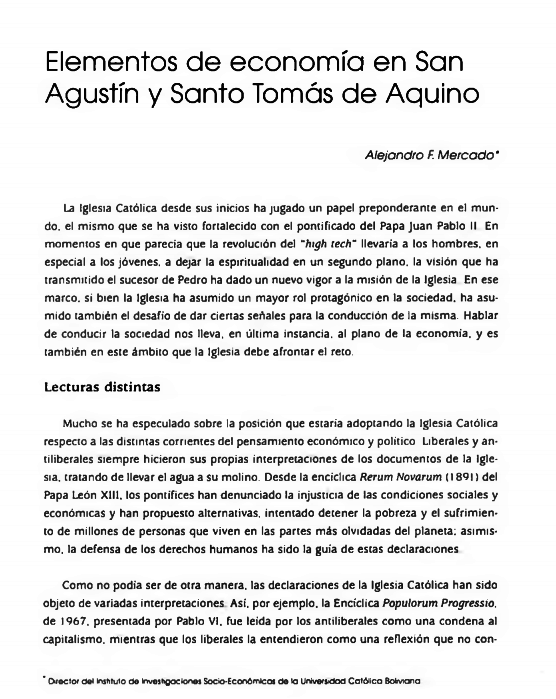Elements of economy in San Agustín and Santo Tomás de Aquino
DOI:
https://doi.org/10.35319/lajed.20054271Keywords:
Catholic Church, EconomicsAbstract
The Catholic Church from its beginnings has played a preponderant role in the world, the same one that has been strengthened with the pontificate of Pope John Paul II. At a time when it seemed that the "high tech" revolution would lead men, especially young people, to leave spirituality in the background, the vision that the successor of Peter has transmitted has given new vigor to the mission of the church. In this framework, although the Church has assumed a greater leading role in society, it has also taken on the challenge of giving certain signals for the conduct of it. Talking about leading society leads us, ultimately, to the plane of the economy, and it is also in this area that the Church must face the challenge.
Downloads
References
Dougherty, W. H. 2003. Catholicism and the Economy: Augustine and Aquinas on PropertyOwnership. Markets & Morality Vol. 6 Num. 2. Acton Institute for the Studyof Religion and Liberty. Michigan, United States.
Ekelund, R. B. y R. F. Hébert. 2003. Historia de la teoría económica y de su método. Madrid: McGraw Hill.
Rima, I. H. 1995. “Desarrollo del análisis económico" Madrid: Ediciones Irwin. Rima cita “De Summa Theologica” (1269-1290) de Santo Tomás (tr. de Fraile Teófilo Urdanoz), Madrid, Biblioteca de Autores Cristianos, 1956, quien a su vezcita a San Agustín.
Strathern, P. 2000. San Agustín. Madrid: Siglo XXI.






